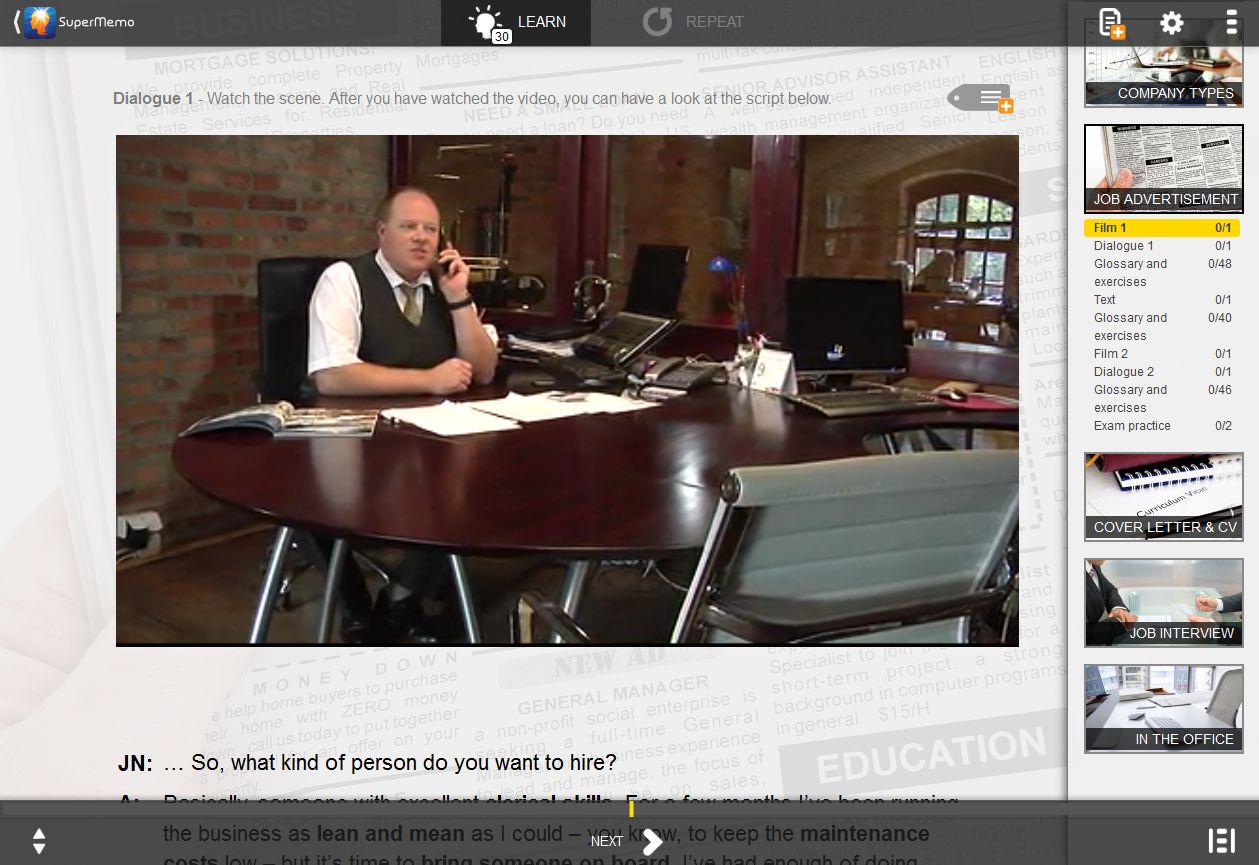What is a language proficiency level?
Levels of language knowledge allow you to determine how fluent you are in a language other than your mother tongue. How do you determine this, so that you don’t have to rely solely on your own subjective opinion? How can you describe the level of language proficiency in your CV, so that the recruiter knows immediately what to expect from you? The Common European Framework of Reference (CEFR), the most popular European language assessment system, comes to the rescue.
The CEFR was created as a result of the work of the Council of Europe, and was first published in 2001. The CEFR methodology is structured in a way that enables the system to determine your level of proficiency in any language. The Council of Europe created it to integrate the Member States of the European Union in terms of education and culture, in matters related to language learning. The CERF was also created with transparency of the teaching processes in mind.
Of course, this is not the only way to classify language proficiency. However, in our country and culture, the European System of Language Learning Description is the most popular, and therefore the most readable, also for potential employers.
CEFR language proficiency levels
The CERF scale consists of 6 stages, from A1 to C2. The first two, A1 and 2, relate to basic skills. Using English or another language at B1 or B2 level, you can already think in terms of linguistic independence, while real proficiency starts with C1.
Below you will find short descriptions of the different levels of language proficiency according to CEFR.
A1
At this language level (English, German, Russian – any modern language) you understand and are able to use basic everyday phrases that make it easier to meet your specific needs.
Knowing the language at A1 level, you can introduce yourself, say where you come from, you are also able to communicate on a very basic level, provided that your interlocutor speaks slowly and clearly.
A2
You can use simple sentences, understand statements and frequently used expressions related to everyday life (e.g. shopping, family, work). You can also easily describe your background, immediate surroundings and matters concerning immediate needs.
B1
You understand statements on topics that are frequently encountered, in the workplace, say. You can engage in conversations on general topics. You are not afraid of so-called small talk. You can handle most situations that might crop up while travelling. You have no problems creating simple texts on topics related to everyday life. You are able to describe your experiences, events in your life, dreams, hopes, ambitions and briefly explain the reasons for your decisions, plans, or express opinions on popular topics.
B2
At this level of language knowledge, you are already able to understand the main ideas and assumptions of more complex texts on specific and abstract topics, including technical discussions in your area of expertise. The level of B2 language knowledge allows you to communicate in a fairly fluent and spontaneous way with native speakers. You should also be able to construct clear and detailed texts on a wide variety of topics and express your point of view in a given area by presenting the advantages and disadvantages of different options.
C1
You can understand a wide range of demanding, longer texts, recognising their implied meanings. You can express yourself fluently without searching for specific phrases. You can use language effectively for social, academic and professional purposes. You can produce clear, well-organised, detailed texts on complex topics using correct spelling and grammar.
C2
You can easily understand practically everything that you hear or read. You can summarise information from a variety of oral and written sources, reconstructing arguments and logical connections in a coherent presentation. You can express yourself spontaneously, very fluently and precisely, distinguishing subtler shades of meaning, even in more complex situations.
Where to put and describe the language levels in your CV
Once you have determined your level of English or other foreign language proficiency, it’s time to find out where and how to describe it in your CV.
It is worth placing information about the level of advancement in a specific language on the first page of your CV, so that it does not escape the recruiter or future employer. This is extremely important, especially if knowledge of a specific language is one of the key skills for a given position.
When putting the language proficiency level in your CV, you can make it visible by graphically highlighting this information. This can be done by framing the language entry or using a graphic scale, say, a bar, the filling of which will reflect your level of knowledge of English, German or other language you speak to such a degree that it is worth adding to your CV.
One of the ways that will attract the attention of the person viewing the CV is the use of two forms of description: graphics combined with writing.
By using a graphic designation in the form of 3 filled circles on a six-point scale, you can additionally label them with the explanatory caption “Intermediate (B2) level”. Such a combination of techniques is conspicuous and gives relevant information both to those familiar with the CERF scale and to those who may not know much about it.
Language skills in CV and certificates
Declaring the knowledge of a language at a certain level is one thing, but the ability to provide the employer with a certificate confirming this declaration is another. If you have passed an exam and obtained a certificate that can reassure the recruiter or future employer that you speak English, or another language at a certain level, attach this certificate to your CV.
The most popular and well-known are the English proficiency certificates, such as:
CEA (Certificate in Advanced English)
Obtaining this certificate means that you speak English at C1 level. With this certification, you demonstrate proficiency similar to that of an undergraduate student or a specialist in a specific field. This means that, by holding the CEA certificate, you can write comprehensive reports, e-mails or take notes during meetings or lectures, you are able to present complex problems in English and understand a variety of texts, from fiction to opinion-forming press.
If you are thinking about taking the CAE exam, our course – CAE Words – will help you prepare for it.
TELC (The European Language Certificates)
TELC tests are organized by GmbH and cover as many as 10 European languages. TELC certificates confirm the knowledge of a language at all levels compliant with CEFR (from A1 to C2). It is possible to take a business exam that confirms language competencies, useful in a variety of professional situations. Having such a certificate should be of interest to a potential employer.
BEC (Business Preliminary, Business Vantage, Business Higher)
BEC certificates confirm the knowledge of business English at three levels (B1, B2, C1). The exams are especially useful for people who are planning an international career.
The Business English and BEC Words courses from SuperMemo will aid you with your business English training. With their help, you will be able to improve your skills in several extremely important areas related to your professional career. The courses will be useful, for example, for people who are starting their own business, or who work in marketing and advertising. The SuperMemo application can provide excellent support during preparation for the BEC exam.
Do employers verify your level of language proficiency and, if so, how?
If, in addition to entering the language in your CV, you are also able to attach a document, a certificate that confirms your words, it is possible that you will avoid language knowledge verification.
Employers have several tools at their disposal to check whether the declared level of language proficiency does not differ from the actual skills you possess. One way is through a language test, which is often done online.
However, a language audit in the form of a video call is a much more reliable method. During such an interview, the recruiter is able to find out to what extent your skills will be useful in the context of the tasks that you will have to perform every day in the position you are applying for.
How to “show off” language skills during an interview
You can’t prepare for an interview in a foreign language a day or two in advance. In fact, the interview is only a confirmation of your level of knowledge of the language, the results of often many years of effort.
It is a good idea to warm up your vocal apparatus just before the conversation. For example, you can ask someone close to you for a short warm-up conversation, provided of course that they speak the language.
If you want to shine, try to use phrases that will show that you are an attentive audience. It is a good idea to refer directly to your interlocutor. Such English phrases like as you said before, as you mentioned previously, and so on, might help.
Try to relax before starting the conversation. If you were honest on your CV, the interview should be a formality!



